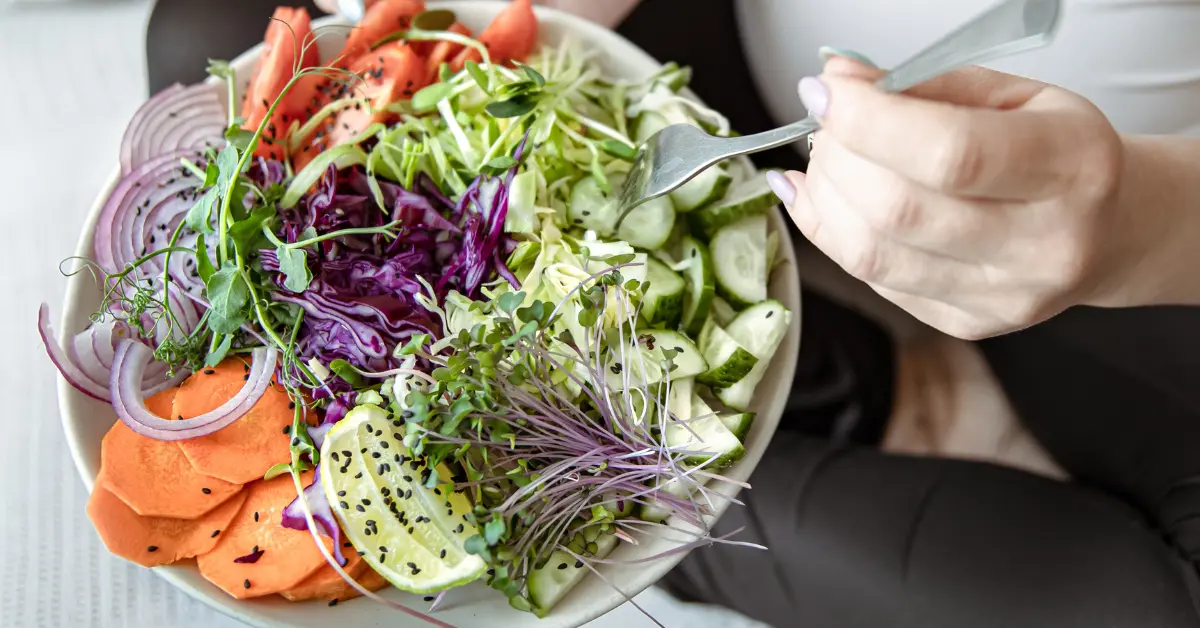Congratulations on the arrival of your bundle of joy! The postpartum period is a special time that requires extra care and attention, especially when it comes to your diet. A nourishing postpartum diet can support your body’s recovery, provide essential nutrients for breastfeeding if applicable, and help prevent postpartum depression.
We will explore the importance of postpartum nutrition, essential nutrients, anti-inflammatory foods, and practical tips for creating a healthy postpartum diet. So let’s dive in and discover how you can optimize your postpartum journey through proper nutrition.
Why Postpartum Diet Matters
The postpartum period is a time of significant physical and emotional changes for new mothers. Your body has just gone through the incredible process of growing and birthing a baby, and now it needs time to recover and heal. Proper nutrition during this time is crucial for several reasons:
1. Physical Recovery
Childbirth is a physically demanding process, and your body needs adequate nutrition to repair tissues, replenish nutrient stores, and regain strength. A well-balanced postpartum diet can provide the necessary nutrients to support your body’s healing process.
2. Hormonal Balance
Your hormone levels fluctuate significantly during the postpartum period, which can affect your mood and emotional well-being. A nutrient-rich diet can help balance hormones and reduce the risk of postpartum depression.
3. Breastfeeding Support
If you choose to breastfeed, your nutritional needs increase to support milk production and provide essential nutrients for your baby. A healthy postpartum diet can ensure you have an abundant supply of breast milk and that it is rich in nutrients.
4. Energy and Vitality
Caring for a newborn requires immense energy and stamina. A nourishing diet can provide the energy and nutrients you need to meet the demands of motherhood and promote overall vitality.
Now that we understand the significance of postpartum nutrition, let’s explore the key elements of a healthy postpartum diet.
The Five Pillars of Postpartum Nutrition
To create a well-rounded and nourishing postpartum diet, it is essential to focus on five key pillars: warm, digestible foods; nutrient density; anti-inflammatory foods; collagen-rich foods; and appropriate supplementation. Let’s delve into each pillar and discover how it contributes to your postpartum well-being.
1. Warm, Digestible Foods
In many traditional medical systems, such as Traditional Chinese Medicine (TCM) and Ayurveda, warm foods are recommended during the postpartum period. These foods are believed to support the body’s healing process and replenish lost energy. Soups, stews, and cooked vegetables are excellent options for warm, digestible foods.
2. Nutrient Density
During the postpartum period, it is crucial to prioritize nutrient-dense foods that provide a wide range of vitamins, minerals, and antioxidants. These foods support your body’s healing process, replenish nutrient stores, and promote overall well-being. Colorful fruits and vegetables, lean proteins, healthy fats, and whole grains should be staples in your postpartum diet.
3. Anti-Inflammatory Foods
Inflammation plays a significant role in postpartum recovery and mental health. Including anti-inflammatory foods in your diet can help reduce inflammation, support tissue repair, and lower the risk of postpartum depression. Fresh, colorful vegetables; fruits; lean proteins; healthy fats; and probiotic-rich foods are excellent choices for an anti-inflammatory postpartum diet.
4. Collagen-Rich Foods
Collagen is a protein that plays a crucial role in tissue repair and can support postpartum recovery. Including collagen-rich foods in your diet can promote healing, strengthen connective tissues, and even help with postpartum hair loss. Bone broth, gelatin, and meat cooked with bones are excellent sources of collagen.
5. Appropriate Supplementation
While a well-balanced diet should provide most of the necessary nutrients, certain supplements can support your postpartum journey. Continuing with high-quality prenatal vitamins while breastfeeding is essential to meet increased nutritional needs. Additionally, specific supplements like omega-3 fatty acids, vitamin D, and probiotics may be beneficial. Consult with your healthcare provider to determine the appropriate supplements for your individual needs.
Now that we have explored the pillars of postpartum nutrition, let’s delve into specific nutrients and foods that can enhance your postpartum recovery.
Essential Nutrients for Postpartum Well-being
During the postpartum period, your body requires an array of nutrients to support healing, breastfeeding (if applicable), and overall well-being. Let’s take a closer look at some essential nutrients and the foods that provide them.
1. Protein
Protein is crucial for tissue repair and recovery after childbirth. It also supports breast milk production and provides essential amino acids for your baby’s growth. Include lean sources of protein such as poultry, fish, eggs, legumes, and tofu in your postpartum meals.
2. Healthy Fats
Healthy fats are essential for hormone production, brain health, and nutrient absorption. Include sources of healthy fats, such as avocados, nuts, seeds, olive oil, and fatty fish like salmon, in your postpartum diet.
3. Iron
Iron is necessary for replenishing blood loss during delivery and preventing iron deficiency anemia. Include iron-rich foods like lean red meat, poultry, fish, legumes, leafy greens, and fortified grains in your postpartum meals.
4. Calcium and Vitamin D
Calcium and vitamin D are essential for maintaining strong bones and teeth, especially if you are breastfeeding. Dairy products, fortified plant-based milks, leafy greens, and sunlight exposure are excellent sources of calcium and vitamin D.
5. Omega-3 Fatty Acids
Omega-3 fatty acids support brain health, reduce inflammation, and are crucial for your baby’s brain development if you are breastfeeding. Include fatty fish like salmon and sardines, walnuts, chia seeds, and flaxseeds in your postpartum diet.
6. Fiber
Fiber promotes healthy digestion and prevents constipation, a common issue during the postpartum period. Include fiber-rich foods like fruits, vegetables, whole grains, legumes, and nuts in your meals to support digestive health.
7. B Vitamins
B vitamins play a vital role in energy production and mood regulation. Include foods rich in B vitamins such as whole grains, leafy greens, eggs, nuts, seeds, and lean meats in your postpartum diet.
8. Water and Hydration
Staying hydrated is essential for overall well-being and milk production if you are breastfeeding. Aim to drink at least 10 to 15 glasses of water per day and include hydrating foods like fruits and vegetables in your meals.
By incorporating these essential nutrients into your postpartum diet, you can provide your body with the necessary building blocks for recovery and optimal well-being.
Practical Tips for a Healthy Postpartum Diet
Creating and maintaining a healthy postpartum diet can be challenging, especially with the demands of caring for a newborn. Here are some practical tips to help you establish and maintain a nourishing eating routine during this special time:
1. Meal Prepping and Batch Cooking
Prepare meals and snacks in advance to save time and ensure you have nutritious options readily available. Batch cooking soups, stews, and casseroles that can be frozen and reheated will make mealtime easier.
2. Accept Help and Delegate
Don’t hesitate to accept help from family and friends. They can assist with meal preparation, grocery shopping, or caring for your baby while you focus on self-care and nourishing yourself.
3. Snack Smartly
Keep healthy snacks within reach, such as cut-up fruits, vegetables with hummus, nuts, yogurt, or homemade energy bars. These snacks will provide quick energy and essential nutrients throughout the day.
4. Hydrate Regularly
Drink water regularly throughout the day to stay hydrated. Keep a water bottle nearby, and set reminders to drink if necessary. Herbal teas and infused water can also add variety to your hydration routine.
5. Embrace One-Pot Meals
Simplify meal preparation by incorporating one-pot meals into your postpartum diet. Soups, stews, stir-fries, and sheet pan dinners can provide a variety of nutrients in one dish while minimizing cleanup.
6. Seek Support from a Postpartum Care Provider
Consider working with a midwife or postpartum care provider, such as Midwife360, to receive personalized guidance and support in your postpartum journey. They can provide valuable insights on nutrition, self-care, and overall well-being during this unique time.
7. Listen to Your Body
Pay attention to your hunger and fullness cues. Eat when you are hungry and stop when you are comfortably satisfied. Trust your body’s signals and honor its needs for nourishment.
8. Practice Self-Care
Prioritize self-care activities that nourish your body and mind, such as gentle exercise, relaxation techniques, and quality sleep. Taking care of yourself holistically will complement your postpartum diet and support overall well-being.
Remember, each postpartum journey is unique, and it’s essential to listen to your body’s needs and consult with your healthcare provider for personalized guidance.
Embracing a Healthy and Vibrant Postpartum
The postpartum period is a transformative and beautiful time in a mother’s life. By prioritizing a healthy postpartum diet, you can support your body’s recovery, enhance breastfeeding if applicable, and promote overall well-being. Incorporate warm, digestible foods; nutrient-dense options; anti-inflammatory choices; collagen-rich foods; and appropriate supplementation into your meals.
Ensure you consume essential nutrients such as protein, healthy fats, iron, calcium, vitamin D, omega-3 fatty acids, fiber, B vitamins, and water. Implement practical tips like meal prepping, accepting help, and seeking support from postpartum care providers such as Midwife360. Embrace this special time with love, nourishment, and self-care. Cheers to a healthy and vibrant postpartum journey!






